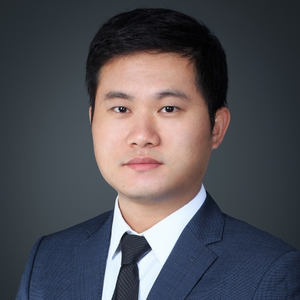Event Details
While the world's first central bank digital currency (CBDC) was issued in the Bahamas in October 2020, the concept of a CBDC dates back as early as 2003 when the Bank of International Settlements (BIS) published a working paper discussing the role of central bank money in the payment ecosystem. CBDCs started to be taken more than just an interesting economic idea when Facebook announced in June 2019 that it would issue a digital currency called Libra that are essentially blockchain tokens backed by a basket of currencies.
Among the major economies in the world, China is taking the leading role in implementing CBDCs. China first tested its digital Renminbi in four cities such as Shenzhen and Suzhou in 2020, and further extended the test to six other cities including Shanghai in 2021. People's Bank of China, in collaboration with BIS, has also been experimenting with cross-border payments using CBDCs with central banks in Thailand and The United Arab Emirates. Although more wary of the risks of CBDCs, other major central banks such as the Federal Reserve (FED) and the European Central Bank (ECB) are becoming more open towards CBDCs. The ECB will make its decision to launch a digital Euro or not in the middle of this year, and the FED will publish a research paper discussing the possibility of issuing a digital Dollar in this summer. The BIS estimates that 86% of central banks are actively exploring CBDCs, with 1/5 of the world population poised to use the CBDCs of their central banks within 3 years.
The associated explosion of stablecoins — privately-issued digital currencies that peg to a stable reference such as the US dollar — has gone up 20x to become a US$100 Billion market over the last year. An estimated US$24 trillion dollars of digital assets (1/4 the broader money supply of the world) will be created by 2027. The global consensus on digital currencies/assets have surpassed a critical inflection point with both institutional adoption and massive retail demand. Top global financial institutions including investment banks, payment companies, asset managers, insurance companies and university endowments are mobilising to embrace digital currencies and assets.
CBDCs are likely coming in the foreseeable future. How will CBDCs work and what are its advantages compared with conventional currency? How will CBDCs change the monetary and financial systems that have been keeping the world economy running? What are the implications of CBDCs for the business world? We will discuss these questions in our lunch event where Dr Michael Sung, Founder and Chairman of CarbonBlue Innovations and Co-Director of the Fintech Research Center at Fudan University, will share his thoughts on the future world of CBDCs with our audience.
Please note that this event is limited to senior-level executives and per invitation only. If you are not an existing member of The Economist Corporate Network, but would like to learn how you can attend our events, please contact us.



